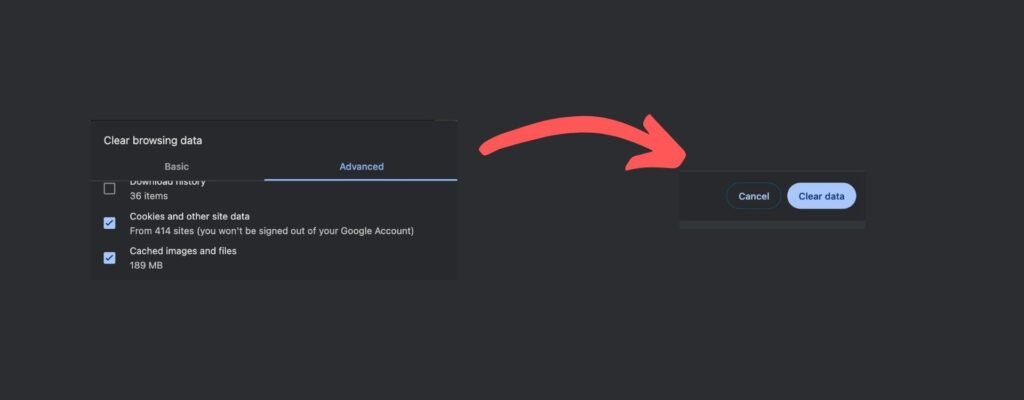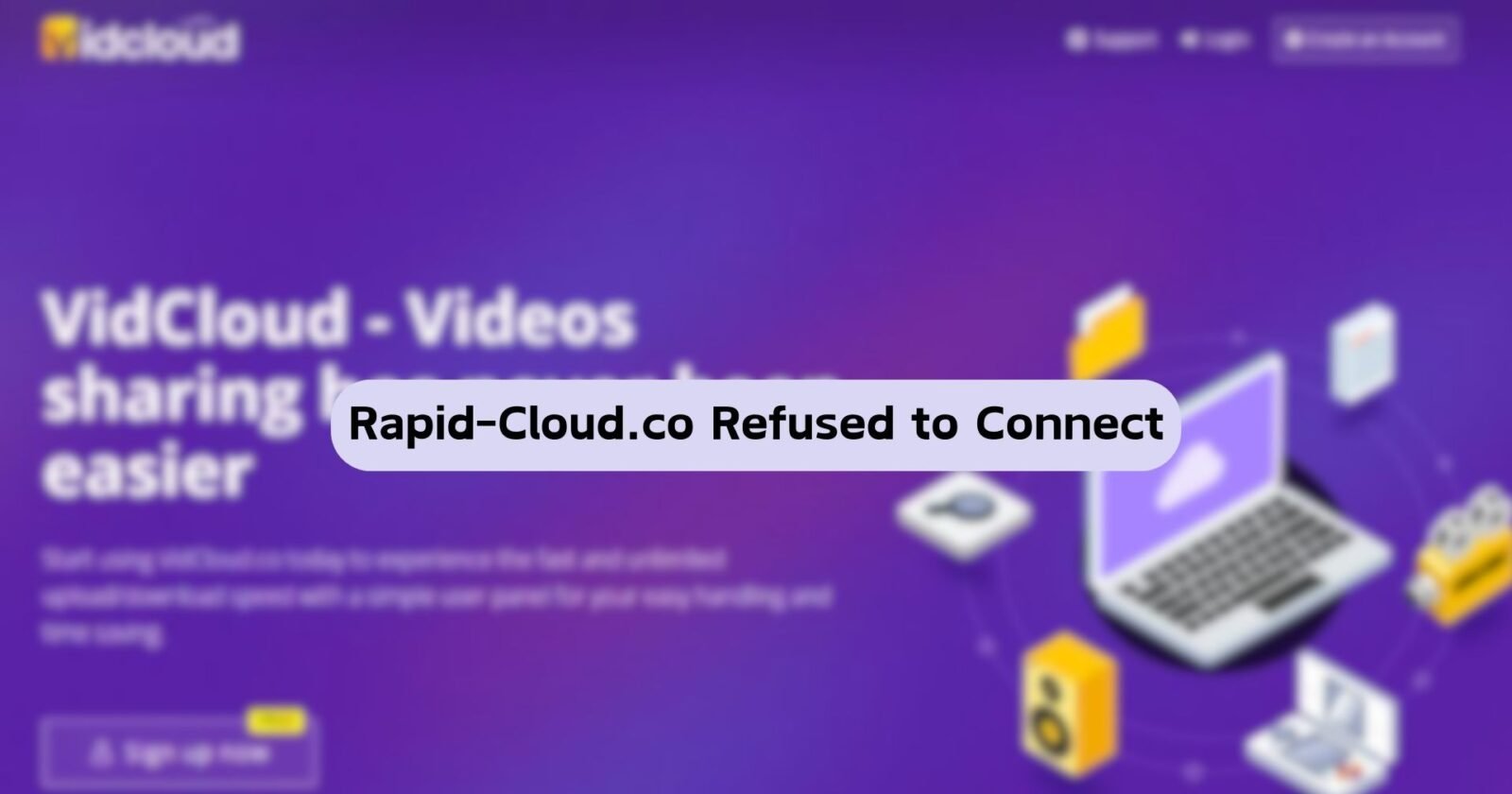Rapid-Cloud.co, a widely used cloud storage and file-sharing platform, is currently facing connectivity issues, with users reporting the ‘Refused to Connect’ error.
This problem can be particularly frustrating for those relying on the service for business or personal use. Rapid-Cloud.co is known for its user-friendly interface and efficient file management system, making it a preferred choice for many.
The ‘Refused to Connect’ error could be due to a variety of reasons, including server problems, network issues, or browser-related complications.
This article aims to explore the possible causes of this error and offers a list of alternative cloud storage solutions.
Why Rapid-Cloud.co Refused to Connect?
There are several reasons why you might be encountering a “refused to connect” error with Rapid-Cloud.co:
- Server Downtime or Overload: The Rapid-Cloud.co servers might be down, either for maintenance or due to an unexpected outage. Alternatively, the server could be overloaded with traffic, preventing new connections.
- Network Issues: Problems with your local network can prevent you from connecting to certain websites. This could be due to issues with your ISP, router, or local network settings.
- Firewall or Security Settings: Your firewall or security software might be blocking the connection to Rapid-Cloud.co. This can happen if the software mistakenly identifies the website as a threat.
- DNS Problems: DNS issues can lead to connection problems. If the DNS server is not resolving Rapid-Cloud.co’s address correctly, your computer won’t be able to establish a connection.
- Blocked by ISP or Government: In some cases, ISPs or government entities block access to certain websites. If Rapid-Cloud.co is on such a list, you won’t be able to access it directly.
- Browser Issues: The problem might be specific to the web browser you are using. This can include outdated browsers, corrupted cache or cookies, or incompatibility issues.
- Website Configuration or Coding Errors: There could be configuration or coding errors on Rapid-Cloud.co that are preventing users from accessing the site.
How to Fix Rapid-Cloud.co Refused to Connect Issue
To troubleshoot the “refused to connect” issue with Rapid-Cloud.co, you can try the following steps:
1. Check Server Status
Look for any announcements on Rapid-Cloud.co’s official social media channels or websites like DownDetector to see if there are reports of server issues.
2. Restart Your Router

Sometimes, simply restarting your router can resolve network-related connection issues.
3. Check Firewall and Security Software
Make sure that your firewall or security software is not blocking Rapid-Cloud.co. You might need to add an exception for this site in your software settings.
4. Change DNS Settings
Switch to a different DNS server, such as Google DNS or OpenDNS, to see if DNS issues are causing the problem.
5. Access Through VPN

If the site is blocked by your ISP or government, using a VPN can help bypass these restrictions by encrypting your connection and routing it through a server in a different location.
6. Clear Browser Cache and Cookies

Clear your browser’s cache and cookies to resolve any corrupted data that might be causing connection issues.
7. Try a Different Browser
If the issue is browser-specific, try accessing Rapid-Cloud.co using a different web browser.
8. Contact ISP
If you suspect that your ISP is blocking the site, contact them for clarification and possible solutions.
9. Reach Out to Rapid-Cloud.co Support
If none of the above steps work, contact Rapid-Cloud.co support for assistance. They might provide insights into whether the issue is on their end and potential solutions.
By following these steps, you should be able to identify and address the cause of the connection issue with Rapid-Cloud.co.
Best 7 Alternatives to Rapid-Cloud.co
If you’re encountering issues with Rapid-Cloud.co, here are 7 alternative cloud storage platforms you might consider:
- Dropbox Dropbox is renowned for its simplicity and reliability. It offers file synchronization, personal cloud, and client software. While it provides a seamless experience, some users find its free storage limit quite restrictive.
- Google Drive Google Drive is known for its deep integration with Google’s ecosystem and generous free storage limit. It offers robust collaborative tools but can be overwhelming due to its extensive suite of integrated applications.
- Microsoft OneDrive OneDrive is integrated with Microsoft’s Office suite, making it ideal for those who rely on these tools for work or personal use. It offers a smooth experience, although its best features are tied to the Office 365 subscription.
- Box Box is geared more towards businesses, offering excellent collaboration tools and file security. However, it might be more than what’s needed for individual users who just need basic cloud storage.
- Mega Mega offers a large amount of free storage and strong emphasis on security and privacy. However, its interface can be less intuitive compared to other services, and its security measures sometimes complicate file sharing.
- pCloud pCloud is unique for its lifetime subscription option, offering secure cloud storage with an up-front payment. It has a user-friendly interface, though its lifetime deal might be expensive upfront for some users.
- Tresorit Tresorit is known for its high-level security and privacy features, making it a top choice for sensitive data storage. It’s more expensive than most other options, but it’s ideal for users prioritizing security over cost.
Conclusion
While Rapid-Cloud.co is a reliable and user-friendly cloud storage solution, facing the ‘Refused to Connect’ error can disrupt access to important files and data.
Fortunately, the cloud storage market offers a range of alternatives, each with its unique strengths. From the ubiquitous Google Drive and Dropbox to security-focused options like Mega and Tresorit, there’s a platform to suit various needs and preferences.
Whether you prioritize ease of use, storage capacity, security, or integration with other tools, these alternatives provide a range of options to keep your files safe and accessible.
It’s essential to assess your specific requirements and choose a service that aligns with your storage needs, ensuring a smooth and efficient cloud storage experience even when Rapid-Cloud.co is not available.









